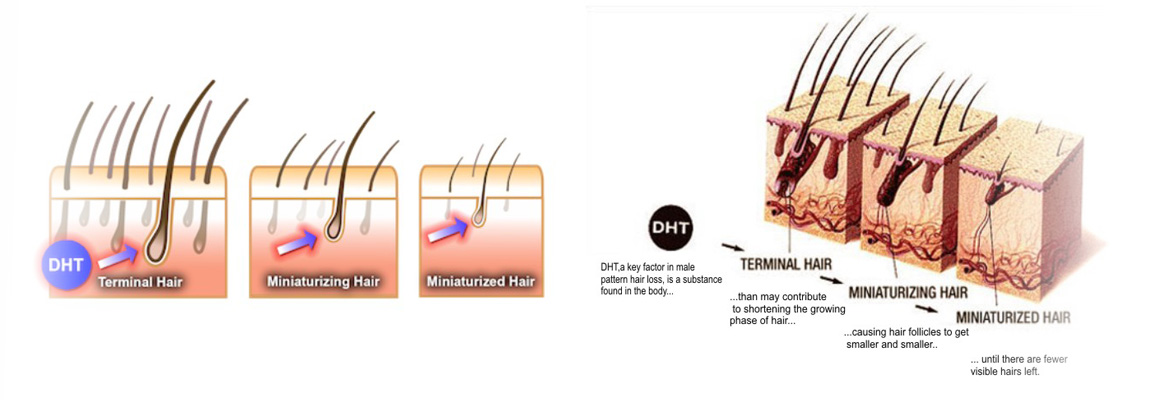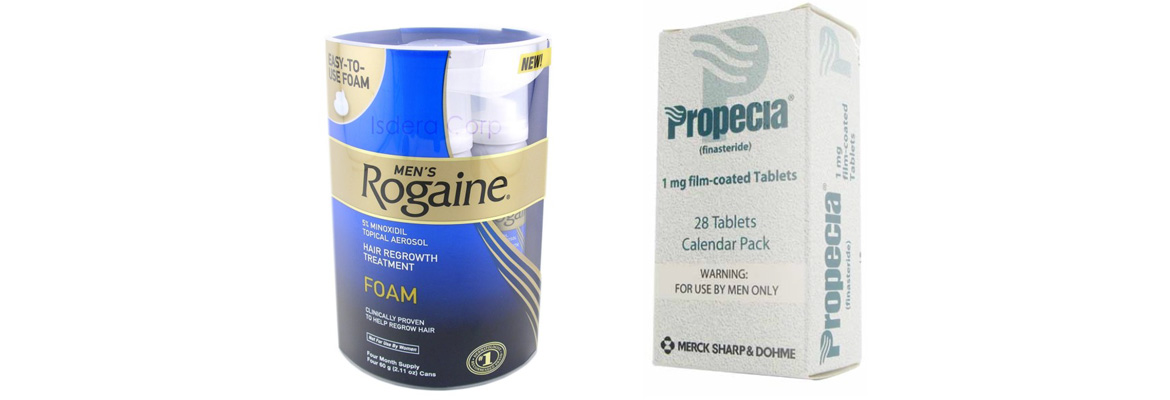
Androgenetic Alopecia
BALDING IS INHERITED
Balding is an inherited, autosomal dominant trait. While the genes that cause one to be bald have yet to be discovered,it is known that several genes are involved. The probability of passing those genes to an offspring is 50%. In addition to genetic makeup,other factors contribute to hair loss. These include male hormones,stress,diet,and aging.
MALE HORMONES GIVE RISE TO BALDING
Although balding is caused by male hormones,it is not triggered by the general male hormones of testosterone,but rather by DHT(dihydrotestosterone),a substance where testosterone is metabolized by a specific enzyme.Finasteride,currently used for balding,inhibits this enzyme.
WHEN ONE IS BALD,DOES THE HAIR STOP GROWING ONCE IT FALLS OUT?
For patients with androgenic alopecia,the hair does regrow once it falls out;however,the new hair is thinner and its growth stage shorter. While normal hair falls out after about 3 years,the hair of a bald individual falls out in a year or less. The new hair is thin and ultimately becomes fine,soft hair.
IS EXCESSIVE SECRETION OF SEBUM THE REASON FOR BALDNESS?
As balding progresses,the hair becomes thinner while the sebaceous gland become large with more secretions. These enlarged glands are only a result of balding,not its cause.

DRUGS FOR BALDNESS
As drug therapy is especially effective at initial stages of hair loss,early diagnosis is all the more important. Hair loss can be minimized with early diagnosis and adequate drug treatment,and the time to reach complete baldness may also be increased. Because drugs for treatment hair loss must be used for a long period,their safety is extremely important. Currently,two drugs have been approved by the U.S. Food and Drug Admininstration. They are Minoxidil (Rogaine) and Finasteride(Propecia).
ROGAINE
Rogaine is a hair growth stimulator originally developed as a treatment for hypertension,but had the side effect of growing hair. While Rogaine's hair growth mechanism is as yet unknown,it is most effective on the crown. The drug is applied daily and takes about 6 months for its effects to be seen the recommended formulation for men is 5% and for women is 2-3%,to avoid thickening of the fine,soft hair on face.
PROPECIA
Propecia inhibits the production of DHT,the cause of baldness and enlarged prostate,by restraining the function of the necessary enzyme. Finasteride (Propecia) was originally used to treat enlarged prostrate,and its effect on hair growth was observed. Like Rogaine,Propecia takes at least 6 and up to 12 months to produce the effects.
DOES TAKING PROPECIA LOWER SEXUAL PERFORMANCE?
Impotence or reduction of sexual desire is a topic of much concern;however,these symptoms are seen in only 2-3 out of every 100 men taking Propecia. Physiologically,men over age 40 experience reduced sexual performances,and they may believe it is due to Propecia.